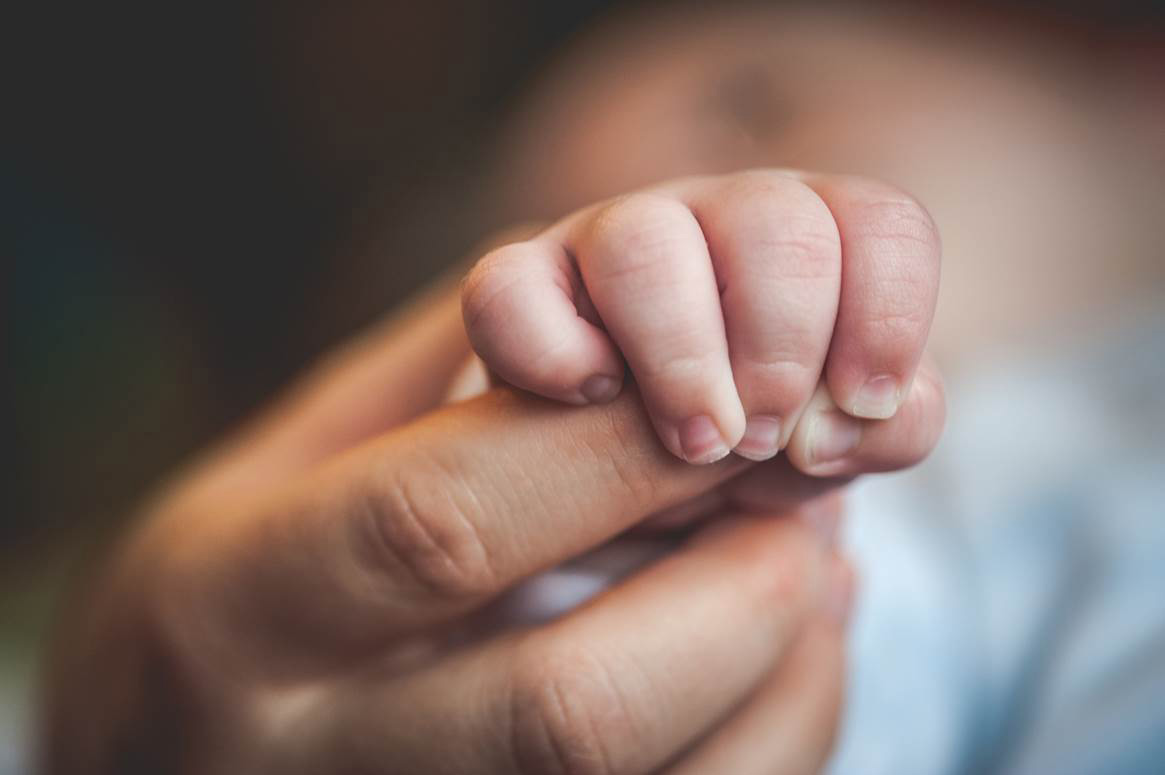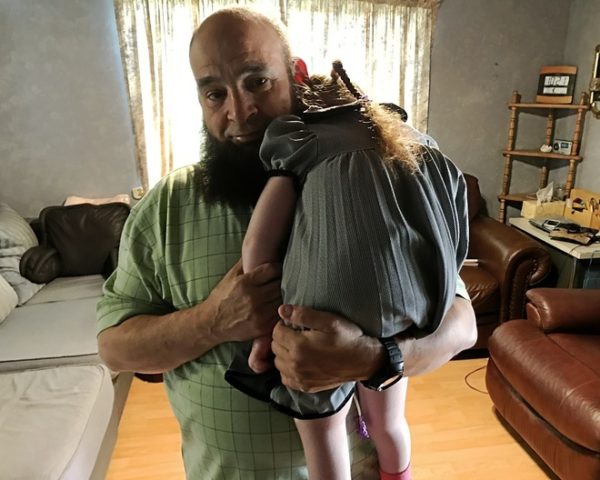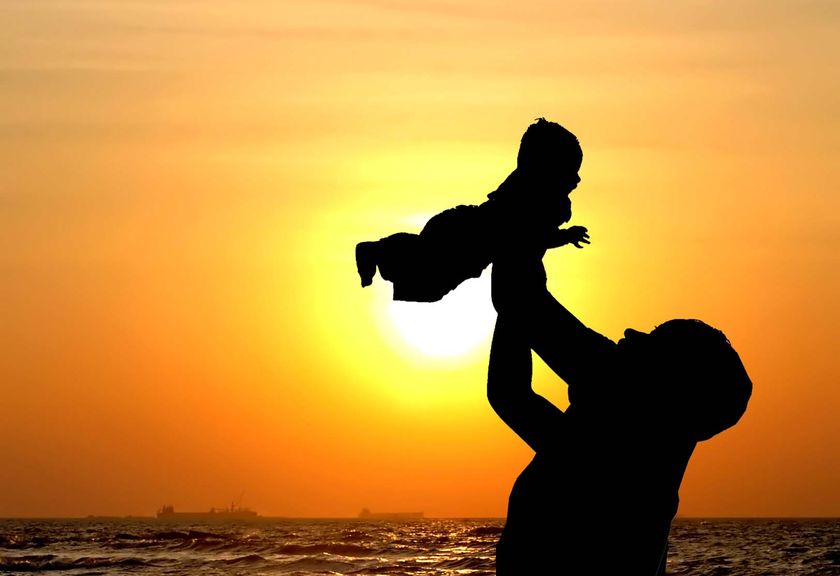A Malaysian young woman adopts an abandoned baby and speaks to the world.
The disadvantaged in society holds a special place in Islam. The Prophet (PBUH) set innumerable examples of how to treat the less fortunate.
While Islamic teachings encourage productivity and self-reliance, they also lay a strong emphasis on the concept of charity and benevolence.
Huge rewards have been promised to those who cater for the needs of the impoverished, orphans, widows, refugees and victims of neglect or abuse.
The Prophet’s companions used to compete with each other to adopt orphans and fulfill the needs of the penniless. Such was how the early Muslims were carefully nurtured under the care and wisdom of the Prophet (pbuh).
Unfortunately, today we live in a world of cruelty and indifference. Abuse, neglect, baby dumping and many other social problems – some of which cannot be imagined by our ancestors decades ago – are on the rise. We boast about the ever-increasing wealth, scientific advancement and knowledge but we silently suffer from each other’s selfishness, apathy and materialistic worldview.
When someone spends money on lavish birthday parties or a posh vacation in Europe, we nod in agreement and feel amused, deeming him/her as a civilized person. However, people who make sacrifices to help those around them remain forgotten and unappreciated.
Dr. Noradlina Mustafa Kamal is a young doctor who works in the Neurosurgical Department of Kuala Lumpur Hospital. Deciding to adopt an abandoned baby at a young age, she faces the challenges of social stigma and has to strike a balance between pursuing her career ambitions and devoting herself to her adopted son.
Most young women of her age are occupied with their own either families or making money and enjoying life, but she has chosen instead a completely different pathway.
Here is an interview with Adlina to learn more about her hope, fear, concern, joy and the message she wants to convey.
Can you tell us briefly about the baby’s background and how you met him?
Adlina: Adam was born on March 27, 2010. His full name is Adam Firhan, given by a Social Welfare Department officer, as he was abandoned by his mother for an unknown reason. Adam was then sent to RumahKanak-KanakTungkuBudriah in Cheras (TungkuBudriah Children’s Home) under the care of the social welfare group.
Since the day he was born, he had multiple visits to Universiti Kebangsaan Malaysia Hospital for respiratory problems. At two months old, he required further treatment and was this time sent to Kuala Lumpur Hospital where I was working as a junior doctor (house officer) at that time, doing my pediatric rotation when Adam for the first time, crossed my path.
What motivated you to adopt Adam?
Adlina: I was driven by love. The nurses in the ward bathed, fed and gave him medications every day and unlike other babies who received regular visits by loving parents and relatives, I saw how lonely this particular baby was. A colleague of mine took some extra responsibilities in looking after him initially and after a while, we started taking turns. I would stay back after office hours to bathe him and feed him.
I did this for four months and I finally found myself overwhelmed by love for this motherless baby. One day, I was doing on-call duties when my sister came to send some food. I decided to show Adam to her. She was deeply touched at the sight of the beautiful baby and excitedly informed my mom.
That was the starting point of our family visiting him every week. I eventually could not resist the attachment I had grown to this boy and so I made one of the biggest decisions in life: to adopt him. I felt like I was ready to commit myself to spending my whole life with him and taking every responsibility. My mom and sister were very supportive. My father was yet to be informed.
What was your family’s reaction to your decision? Did you find society around supportive?
Adlina: I thank Allah for the support I got from the two closest people in my life: my mother and sister. At first, I was worried that my father would be opposed to the idea, but I had no choice but to be transparent with him. Thank God, he took the news quite well and backed me. Now Adam has become his best friend and they are inseparable!
Some people around doubted my ability to look after Adam as I am a unmarried working woman, but I am lucky to have a family who supports me and has been extending a lot of help in taking care of him. Some others came up with questions like, ‘Why are you adopting? Is it because you do not want to get married?’ That never really occurred to my mind. I simply wanted to share what I have with this innocent boy who has no one else in this world.
Allah has blessed me and my family with so much happiness and comfort and we feel strongly that we need to share these blessings with those who are deprived. Abandoned babies and orphans are by all means innocent and there is a reason why they have come to this world in such condition.
I do not agree with the opinion saying that only babies who come from a good lineage should be considered for adoption. Since babies are all born in the state of fitrah (unadulterated, pristine human nature), does it make sense to discriminate against those coming from poorer or disadvantaged backgrounds?
Humans are not given the freedom to choose into which family they would be born or from what genetic make-up they would originate. The factors determining one’s worth are their own deeds and intention, hence what really matters is how these babies are brought up and educated.
What have been the most difficult challenges or obstacles?
Adlina: The first difficulty was going through the process of adoption and the waiting I had to endure before it became legal. I went to court several times to get the adoption finalized. Initially he was under my temporary custody until 2 years of age. Each day I would pray hard to God that Adam would stay with me and that no one would suddenly appear to claim him. I was in constant worry.
The second challenge was breastfeeding him. I decided that Adam deserves the best and that as a mother, I need to provide for him what other babies receive without asking for it. Since I was never married and pregnant before, it was very difficult for my body to produce milk. My experiences of taking hormonal pills and doing what is known as ‘power-pumping’ in my attempt to breastfeed Adam were not very pleasant. Nevertheless, they were priceless. I knew I did my best and that Allah rewards His servants according to their deeds and not the outcome.

How do you think society in general views this practice of single women adopting abandoned babies?
Adlina: Actually, the number of abandoned babies is big but perhaps we do not know where they are and what their fate is. I sincerely would like to thank those women who, despite not wanting the babies, are humane enough to deliver the babies at a proper healthcare facility and give them away to the right place. This is much better than those who mercilessly dump their babies on the streets, or even kill them.
It is important for society to understand that being judgmental does not solve any problem. There can be various reasons why these women choose to leave their newborns. Maybe some mothers are too young and lack social support. Or perhaps some are afflicted by poverty. Who are we to judge? Only God knows.
To be honest, I do not know what people around me think about single women adopting babies. What really counts is that, I am doing the right thing. I was once even accused of going after fame and glamour by way of adopting Adam. This is because among singers and actors in this country, there is a trend of adopting orphans and they get a lot of publicity for that.
To me, it is not a question of glamour or emulating movie stars. We should simply encourage virtuous acts no matter who are involved. To those artists, I want to say thank you for giving the babies a chance for a better life.
What is your biggest hope?
Adlina: My hope is to see more people, regardless of age, gender and marital status taking the responsibility of looking after orphans and abandoned babies, and treats them with utmost compassion. The authorities too need to be more helpful and efficient to make the adoption process easier and less troubling. Many out there are eager to adopt but the procedures are too complicated and time-consuming.
I have always believed that it is better and healthier for these less fortunate children to grow up in a family-oriented environment rather than in institutions. Needless to say, some orphanages are over-crowded and lack sufficient manpower, so isn’t is better if those children are looked after at home?
How I wish society will be more understanding and give support to individuals who decide to adopt, regardless of their marital status! It is important to remove the social stigma. God willing, I am thinking of adopting a second one soon if circumstances are favorable.
What are the important messages that you want to communicate to the world out there?
Adlina: Children are gifts. We should appreciate them and mold them to be great human beings. If we can stop being judgmental and start sharing whatever we have with others, especially the unfortunate; this world will be a better place for all of us to live. Never hesitate to offer help and show kindness. Do not wait for others to start. Let us initiate, and be an example.
First published: May 2014
Read More:

